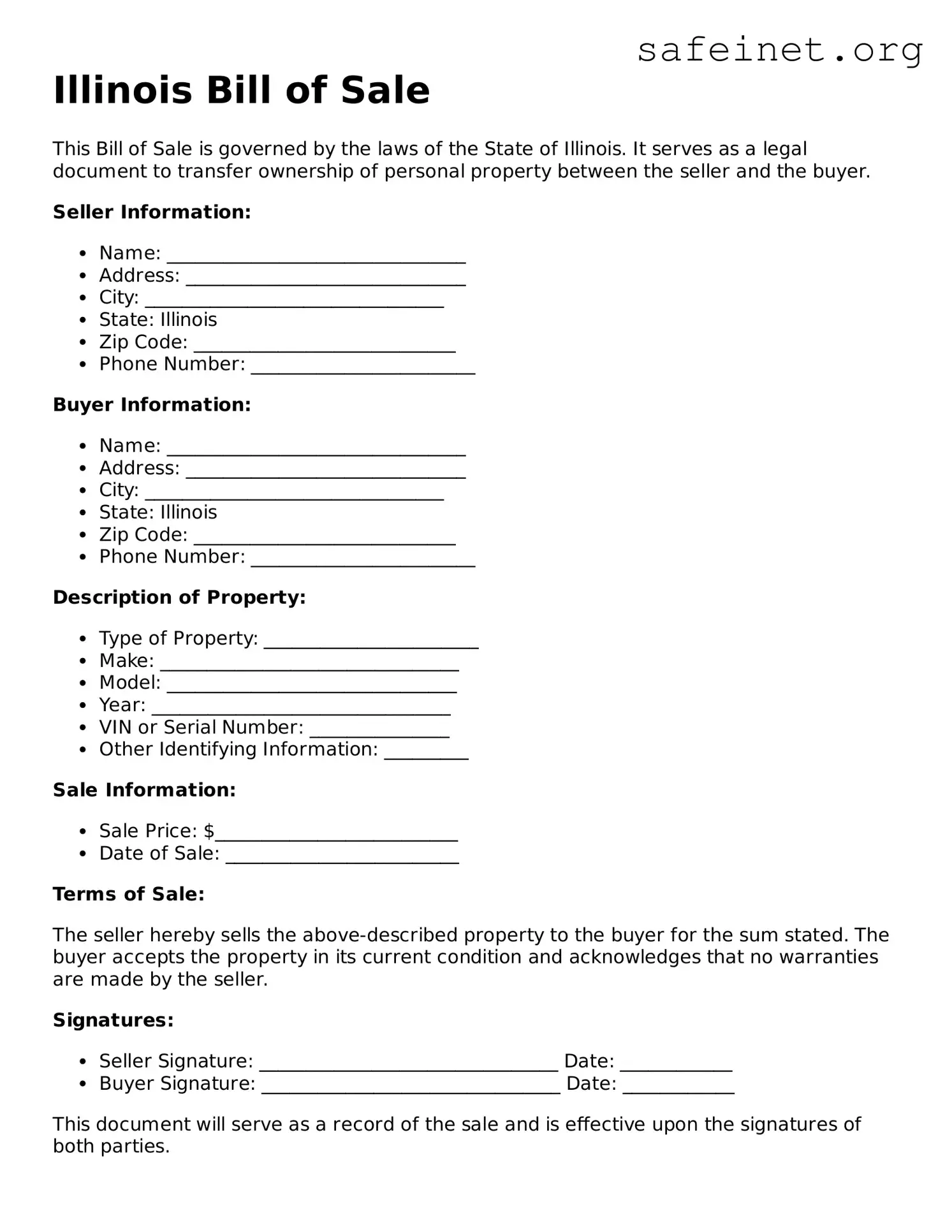A Bill of Sale is a crucial document in transferring ownership of personal property in Illinois. This form serves as legal evidence that a transaction occurred between a buyer and a seller, providing a clear record of the exchange. Key components typically include details about the buyer and seller, a description of the item being sold, the purchase price, and the date of the transaction. The Bill of Sale can cover various types of property, such as vehicles, boats, and personal items. While not always required by law, it is highly recommended for parties involved in a sale to protect their interests. Additionally, having the form notarized can enhance its validity and provide additional legal protections. Understanding the significance of this document can help ensure a smooth transaction and safeguard against potential disputes. With proper completion, the Illinois Bill of Sale form streamlines the process of ownership transfer and contributes to transparent dealings among parties.
